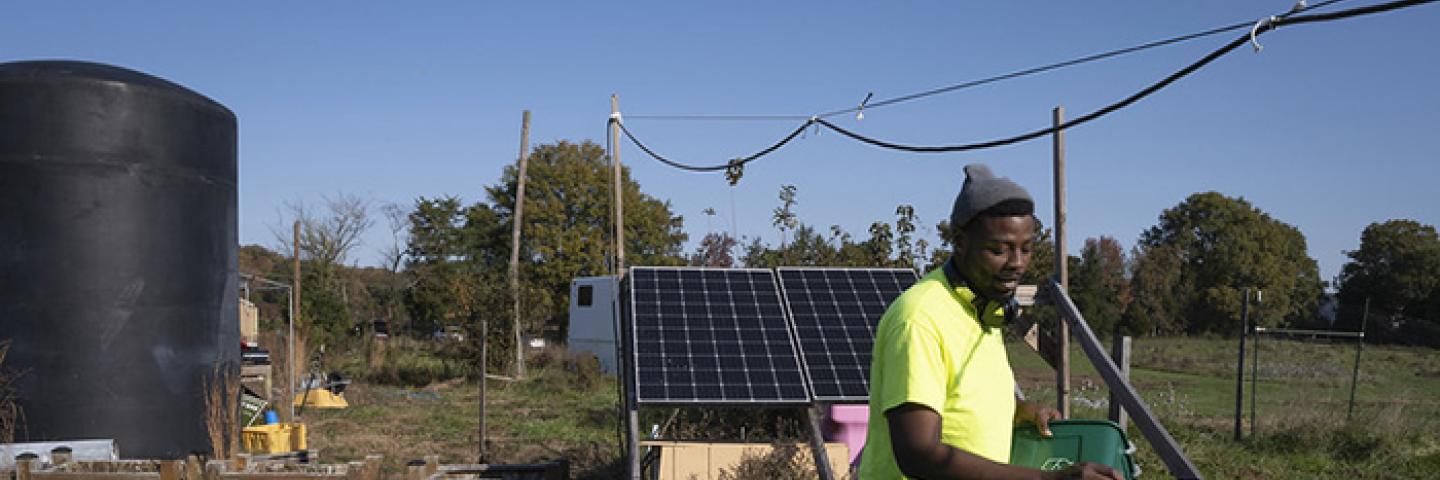USDA Invests $9.4 Million in Compost and Food Waste Reduction Projects

The U.S. Department of Agriculture (USDA) is investing more than $9.4 million in 45 cooperative agreements that support innovative, scalable waste management plans to reduce and divert food waste from landfills.
WASHINGTON, Feb. 2, 2023 – The U.S. Department of Agriculture (USDA) is investing more than $9.4 million in 45 cooperative agreements that support innovative, scalable waste management plans to reduce and divert food waste from landfills. The Compost and Food Waste Reduction (CFWR) cooperative agreements, which are funded by the American Rescue Plan Act, are part of USDA’s broad support for urban agriculture through its Office of Urban Agriculture and Innovative Production (OUAIP). The projects will be implemented between 2023 and 2025.
“These Compost and Food Waste Reduction projects play important roles in building resilient, local food systems, including strong food recovery networks and food waste reduction solutions that benefit farmers and communities,” said Terry Cosby, Chief of USDA’s Natural Resources Conservation Service (NRCS), which houses OUAIP. “With an estimated 4% of U.S. greenhouse gas emissions attributable to uneaten food, local strategies and tools like these are important climate solutions.”
USDA prioritized projects that anticipate or demonstrate economic benefits, incorporate plans to make compost easily accessible to farmers, including community gardeners, integrate other food waste strategies, including food recovery efforts and collaborate with multiple partners.
Recipients include projects in 27 states and one territory. Some highlights of recipients include two projects in California:
- Los Angeles International Airport On-Site Composting and Food Waste Reduction Program
The LAX On-site Composting & Food Waste Reduction Pilot Program (LAX CFWR) is centered on the goal of the implementation of a closed loop on-site composting solution that would integrate collection and processing of all organic waste generated at LAX in collaboration with airport partners and the local community.
- Accelerating and Scaling Carbon Sequestration and Food Recovery in Sonoma County
The project will expand existing collaborations with Zero Foodprint (ZFP) to scale, coordinate, and optimize scaling carbon sequestration projects in coordination with SB1383 implementation strategy, including the expected increase of 10,000 tons of compost created per year. It will increase access to compost for agricultural producers, reduce reliance on fertilizer, improve soil quality, increase rainwater absorption, reduce municipal food waste, decrease food insecurity, and engage businesses in zero waste and circular economy.
For a complete list of cooperative agreement recipients and project summaries, visit usda.gov/urban. These new agreements build on USDA’s $3 million investment in 37 agreements in 2020 and 2021.
More Information
OUAIP was established through the 2018 Farm Bill. It is led by NRCS and works in partnership with numerous USDA agencies that support urban agriculture and innovative production. The CFWR cooperative agreements are part of a broad USDA investment in urban agriculture. Other efforts include:
- Creating and managing a Federal Advisory Committee for Urban Agriculture and Innovative Production to advise the Secretary on the development of policies and outreach relating to urban agriculture. The next meeting is Feb. 23, 2023.
- Reopening the People’s Garden Initiative. People’s Gardens across the country grow fresh, healthy food and support resilient, local food systems; teach people how to garden using sustainable practices; and nurture habitat for pollinators and wildlife and greenspace for neighbors.
- Grants that target areas of food access, education, business and start-up costs for new farmers, and policy development related to zoning and other urban production needs. In late January, USDA announced the availability of $7.5 million for grants.
- Providing technical and financial assistance through conservation programs offered by USDA’s Natural Resources Conservation Service (NRCS).
- Organizing 17 FSA urban county committees.
Today’s announcement supports the Biden-Harris Administration’s broader work to strengthen critical supply chains as directed by Executive Order 14017 America's Supply Chains.
Learn more at usda.gov/urban. For additional resources available to producers, download our Urban Agriculture at a Glance brochure or visit farmers.gov/urban.
USDA touches the lives of all Americans each day in so many positive ways. Under the Biden-Harris administration, USDA is transforming America’s food system with a greater focus on more resilient local and regional food production, fairer markets for all producers, ensuring access to safe, healthy and nutritious food in all communities, building new markets and streams of income for farmers and producers using climate smart food and forestry practices, making historic investments in infrastructure and clean energy capabilities in rural America, and committing to equity across the Department by removing systemic barriers and building a workforce more representative of America. To learn more, visit usda.gov.
#

